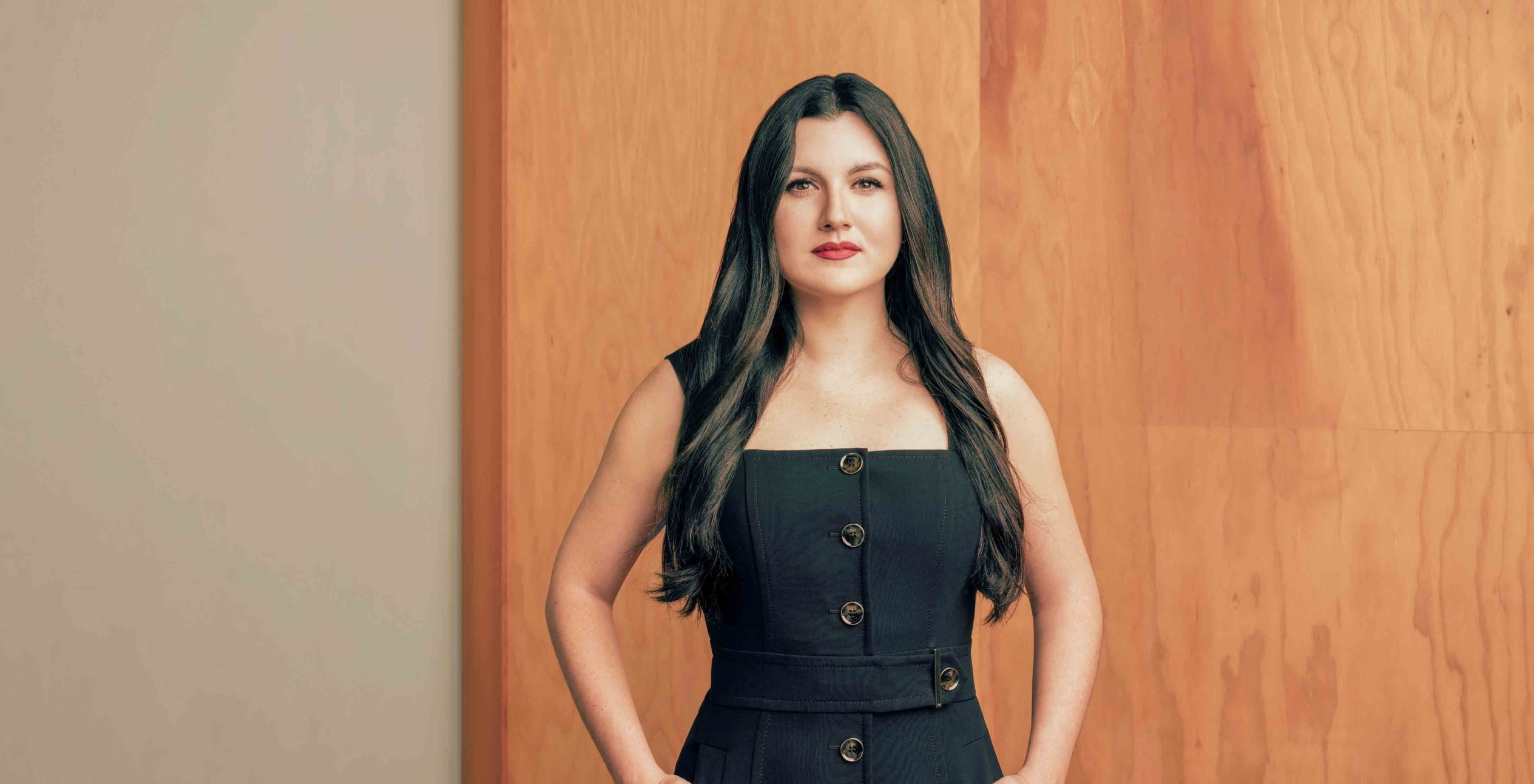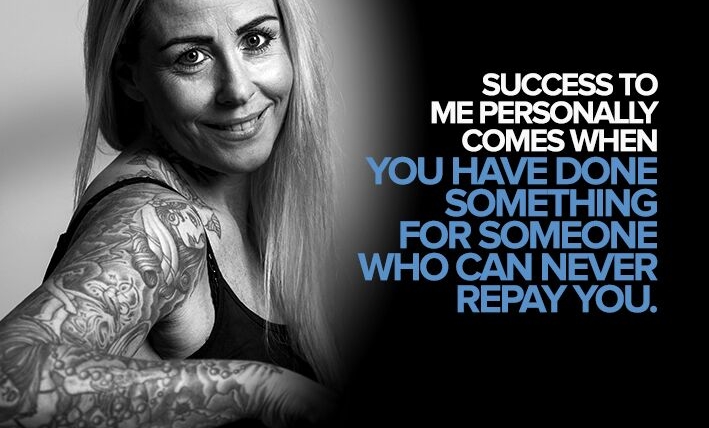
Instacart CEO Fidji Simo on How She Found Her Own Leadership Groove
By Maria Aspan
Fidji Simo is used to standing out in Silicon Valley.
A French immigrant who prefers high heels to hoodies and still speaks with a musical accent, Simo spent a decade climbing the product ranks at Facebook, eventually becoming its most senior female product executive. She ran Facebook’s flagship app before leaving the scandal-wrapped social media giant this summer to take over Instacart, the grocery delivery startup with a $39 billion private valuation.
Now Simo has to chart a post-pandemic path forward for Instacart, which saw sales soar during the pandemic but is struggling with slowing growth, increasing competition, and vocally unhappy contract workers. After founder and former CEO Apoorva Mehta unsuccessfully tried to sell Instacart to DoorDash this summer, Simo is also in charge of getting the company ready for an initial public offering. That makes her one of the few female CEOs whom Silicon Valley investors apparently trust to replace a male founder and take a venture-backed company public, as I reported in a profile for Fortune’s October/November issue.
As a young female immigrant tech CEO, Simo has tried both fitting in and standing out. But by now she’s learned to embrace her outsider status.
“A big part of what I believe is that, fundamentally, we each have something truly unique to bring to the table,” Simo tells Fortune. “It’s that diversity that’s going to make it really fun for all of us to work together—and much more interesting and creative than if we were all made out of the same mold.”
Going against the grain
At first, Simo tried to fit into that same mold. She joined Facebook in 2011 as a product marketer, but eventually moved into a product manager job—where she was soon advised to ditch her makeup and sheath dresses to fit in with her new colleagues and their tech-bro style. But after trying to come to work in a hoodie and jeans, “I felt horrible inside of my own skin—and I realized I wouldn’t be able to do the job if I’m not me,” she recalls.
This seemingly minor decision to ignore Facebook’s unofficial product-team uniform impressed some of Simo’s colleagues early on. “I remember going to one meeting, and the engineering team was like, ‘Engineers don’t trust anybody in heels.’ Then I met Fidji,” recalls Carolyn Everson, Facebook’s former global ads chief and now Instacart’s president. “She had the confidence to dress how she wanted to dress, and I just thought that was a really great thing to see early on.”
But however much she impressed others, Simo struggled to maintain that confidence. “When we first met, she was in a typical phase people go through when they’ve been validated for being really smart and working really hard, of wanting to be perfect,” says Simo’s executive coach, Katia Verresen. “One of the things that she and I have talked about that’s been an amazing arc is, ‘Okay, let’s put that to the side. How about, you be more you.’”
As Simo worked on her confidence, she also found her voice to express her opinions, and, eventually, her blunt professional criticisms. Several current and former colleagues have stories about being on the receiving end of Simo’s “hard conversations”—mitigated by her ability to “deliver bad news better than anyone I’ve ever seen,” says Asha Sharma, a former Facebook vice president of product who’s now Instacart’s chief operating officer. “She’s particularly charming.”
In product reviews she’s observed Simo conduct, “you have to be honest, but you also have to inspire,” Sharma adds. “And [Fidji] just has a way of making everybody in the room feel like the most important person and [willing to] sign up to go climb the hill again—even if they climbed the wrong hill to begin with.”
Specifically, several of Simo’s colleagues say that the Instacart CEO always “does her homework,” as Sharma puts it. Then “she asks a lot of questions, and she does it in a way that leads people to the inevitable outcome of how the data points are coming together for her. When she gives feedback, she tells them the context of why she thinks it’s important—and she offers a way to help them go achieve that.”
Simo acknowledges that these conversations aren’t always easy for her, either. “A hard conversation is uncomfortable for both people,” she says. “Part of caring is having the courage yourself to engage in a conversation that you know is going to make the relationship better or the other person better. Not shying away from that is how you can build deeper bonds.”
Dealing with controversy
However much her colleagues praise Simo for being direct and honest, her public critiques stop when asked about her former longtime employer, Facebook. As head of the company’s flagship app, Simo repeatedly and publicly defended the company for how it handled misinformation, user privacy, and other sources of scandal. And since August, when Simo officially began her role as Instacart CEO, a massive series of whistleblower revelations have sparked intense new congressional and public scrutiny over Facebook executives’ failure to rein in or change how the platform abused its power.
But in the weeks since these reports started, Simo has defended Facebook to Fortune and others, saying that Facebook “could have done a better job predicting the ways in which things could go wrong” but is “spending billions of dollars in keeping people safe.”
Nor is everyone at her new company impressed with Simo’s communication style. Instacart relies on a 500,000-person workforce of contract “shoppers,” who earn a minimum of $7 to $10 per “batch” of groceries—up to three separate orders—plus tips. After a public outcry in 2019, Instacart stopped sometimes counting tips toward a shopper’s guaranteed base pay—but some shoppers say that pay and working conditions have continued to deteriorate during the pandemic, and that Simo hasn’t done enough to address their concerns during her initial months on the job.
When contacted by some shoppers to express these concerns, Simo’s responses “are basically canned answers, and they toe the line of what Instacart has been doing for years,” says Willy Solis of Texas, an Instacart shopper and a lead organizer with the Gig Workers Collective, which represents contract workers at Instacart and other companies in the sector.
On Oct. 16, some Instacart shoppers walked off the job, refusing to work until the company makes the changes sought by the group. Solis this week told Fortune that Simo “is still ignoring shoppers’ demands for fair pay and working conditions,” and that the collective is planning future actions “until these issues are addressed.” (An Instacart spokesperson says the collective’s “claims do not reflect the current shopper experience.”) Simo would not discuss the collective’s claims specifically, but acknowledges that “there’s still a lot of progress to make” to improve the experience of Instacart’s contract workers.
Meanwhile, she’s trying to make progress with another set of important Instacart stakeholders: the big grocery companies and other retailers that pay to use Instacart’s delivery services, and that Simo is trying to cultivate into bigger, stickier, enterprise-tech customers. In October, Instacart agreed to spend $350 million to buy Caper, an A.I. company that makes “smart” grocery carts and cashier-less checkout counters.
Instacart has plenty of competition for retailers’ business (including from some big retailers themselves), as DoorDash, Uber, and a host of smaller competitors muscle in on grocery delivery. But Simo’s communication style and leadership approach has helped her win some fans at Instacart’s biggest grocery partners. In September, Instacart signed a deal to launch 30-minute delivery for U.S. customers of Kroger, the country’s largest traditional supermarket chain.
Since Simo joined Instacart, “we’ve had several very long conversations—and she’s been extremely predictable, reliable, and consistent with strategy,” says Yael Cosset, Kroger’s chief information officer.
He especially praised Simo’s willingness to be flexible when negotiating the terms of Instacart’s evolving partnership with Kroger: “Some of these terms, while they may be applicable to a typical partner, we didn’t feel applied to what we were trying to do together. And every time we’ve declared that this was meaningful and important to us, she didn’t push back,” he says. “She trusted—and demonstrated her mutual commitment.”
Leadership style
At age 36, Simo is a relatively young CEO. And she’s had to hone her leadership style while managing chronic, sometimes acutely painful health conditions that have occasionally forced her to work from bed rest. She suffered for years from endometriosis, the gynecological-tissue disorder that affects one in every 10 women, and endured a difficult pregnancy that required five months of bed rest. Then a surgery to treat her endometriosis triggered a disorder called POTS, or postural orthostatic tachycardia syndrome, which also made it hard for her to stand up. She has now cofounded a women’s health startup, the Metrodora Institute, to research and treat “complex neuroimmune disorders” like hers.
Simo’s gradual willingness to discuss her health struggles, first with her colleagues and now more publicly, has increasingly helped her leadership style, colleagues and friends say.
“Fidji is incredibly comfortable in her own skin—and she’s not afraid to show vulnerability when vulnerability is needed,” says Antonio Lucio, Facebook’s former chief marketing officer.
“She’s extremely ambitious. But she’s ambitious in a very soft way. And she’s also very human,” adds Simo’s friend Diane von Furstenberg, the fashion designer. “She treats people like people.”
It’s that human approach that persuaded Everson, Simo’s longtime friend and former Facebook colleague, to go work for Simo at Instacart—even though, as Everson points out, her new CEO is “almost 15 years younger than me. It says a lot, that that’s the woman I’d go work for.”
Everson says that she had already observed Simo’s ability “to build teams,” to have an “off the charts EQ [emotional intelligence],” to be vulnerable, and to have “deep empathy.” But what finally persuaded her to head to Instacart was, again, Simo’s willingness to ask questions.
When talking to other executives about potential jobs, “most people are like, ‘Let me tell you the 45 reasons why you should join,’” Everson says. But Simo “just took a deep breath and asked, ‘How do I make this amazing for you? What is important to you?’”
“That’s a pretty compelling thing,” Everson adds. “She just wants to make this work for me as a human being.”





